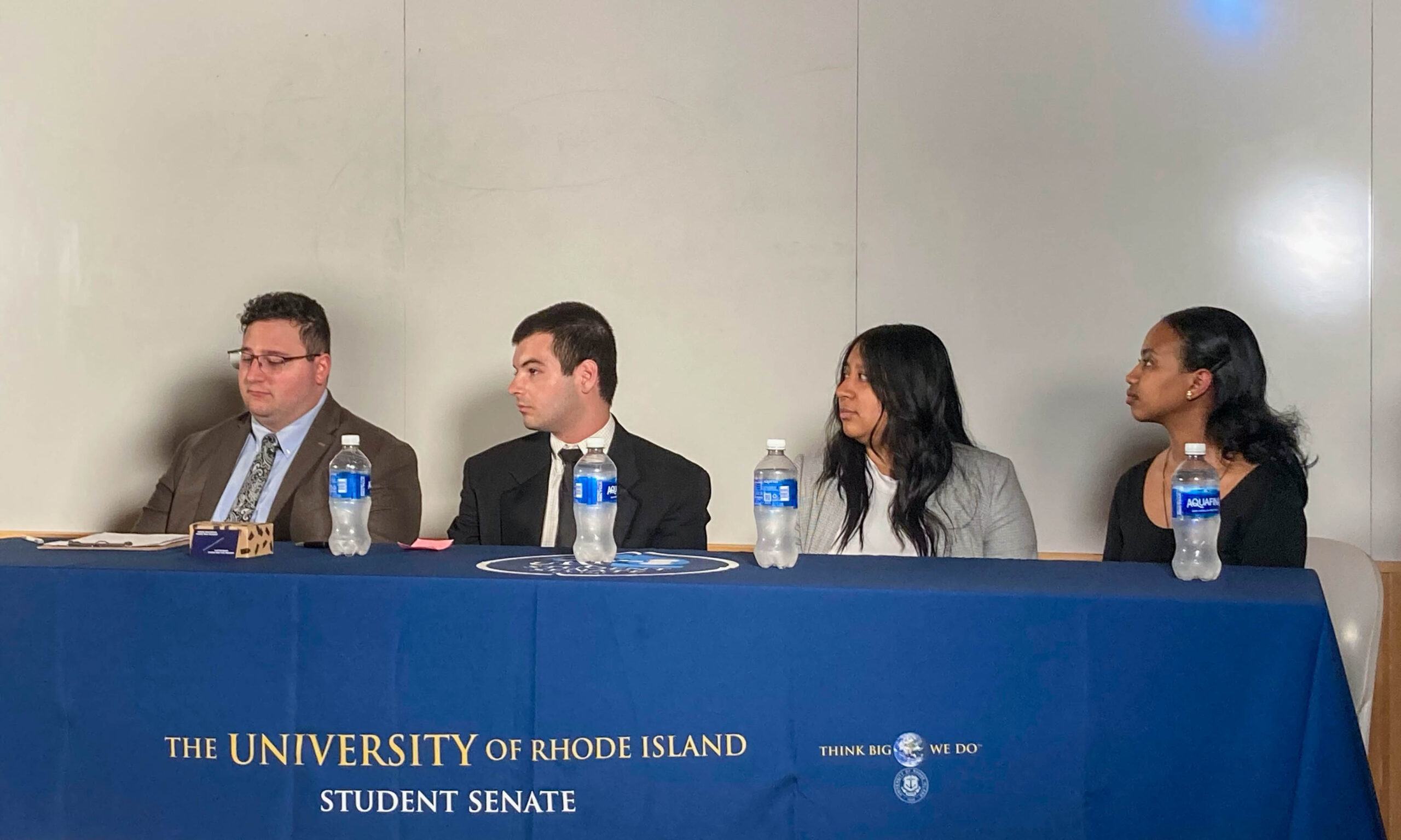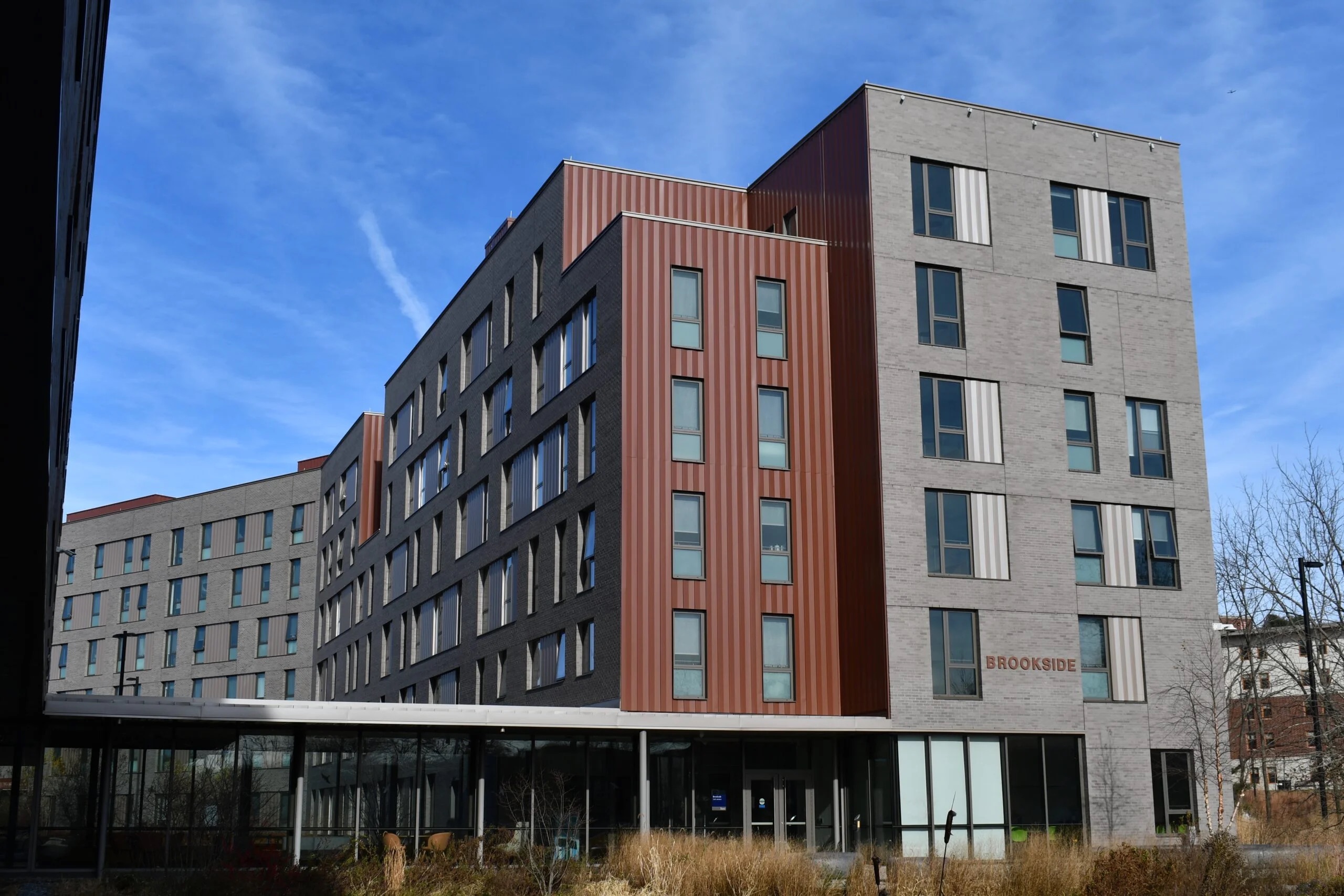In anticipation of President Donald Trump’s revisions to the travel ban, Senator Sheldon Whitehouse met with professors at the University of Rhode Island on Monday to discuss immigration policies and their potential effects on higher education.
Organized by the American Association of University Professors (AAUP), the event provided a platform for nearly 100 professors to gather at the Multicultural Student Services Center and share their concerns and stories surrounding the issue. Later that same day, Whitehouse would return to D.C. to convene with Congress. A wide array of academic fields were represented, from pharmacy to English, and African-American studies to engineering.
One of the first concerns brought forward were the possible effects to students with Deferred Action for Childhood Arrivals (DACA) status. Whitehouse said he is uncertain if Trump will continue the DACA program, but he’s hopeful Barack Obama may have left a lasting impression.
“They’re particularly vulnerable because they’ve identified themselves to the government in good faith, courteously of President Obama’s policy,” Whitehouse said. “Now their good faith may be turned against them by the Trump Administration.”
Executive Director of the Rhode Island ACLU Steven Brown, who attended the event with Whitehouse, was hesitant to give advice.
“I don’t want to say, ‘Don’t worry,’ because I can’t,” Brown said. “We’re living in uncertain times.”
Graduate Dean and Muslim-American Nasser Zawia said that freedom of religion is a right of all U.S. citizens. He does not agree with the demonization of Islam.
“What I’m worried about these days is really not radical Islam,” Zawia said. “I’m more worried about the radicalization of American society.”
Although clinical Assistant Professor Michelle Caetano hasn’t run into any issues at the university, she said she is worried about her undocumented patients at the Rhode Island Free Clinic.
“I’m concerned for them,” Caetano said “I haven’t yet had anyone say to me that they’re afraid to come into the clinic because of all of these things going on, but every time I have a no-show, I can’t help but wonder if it’s because they’re afraid to seek care.”
Caetano volunteers at the clinic once a month providing diabetes education, and her work often requires her to ask patients to interface with state agencies to get the care and medication they need. Caetano said that no one should have to be afraid to seek this care.
According to AAUP Executive Jay Walsh, the idea for the event was generated from a discussion at a union meeting.
“We wanted to make sure that the faculty union was supporting faculty and all of their work and their work related issues,” Walsh said. “This is a tremendously important matter not just for the faculty, but for students and staff on campus also.”
International Center Director Dania Bradford-Calvo extended herself to any students that may be facing issues with their visas if another travel ban is put in place.
“The history of immigration in the United States has moved left to right,” Bradford-Calvo said. “It’s a pendulum. It swings back and forth depending on the political movement of the time.”




